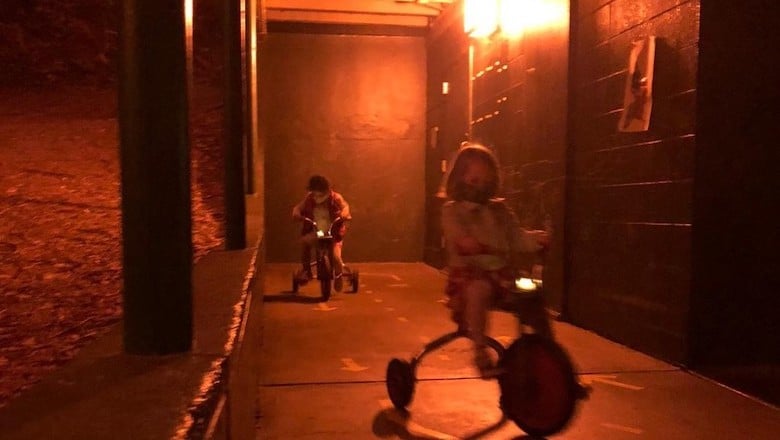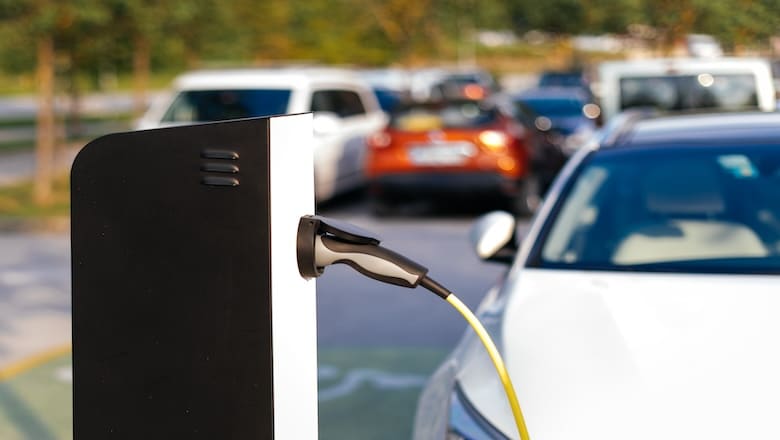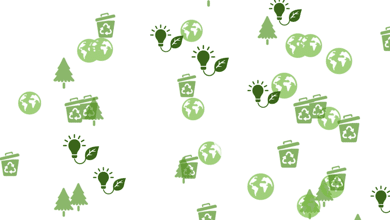Beyond the pandemic: how resilience planning and energy efficiency can help us mitigate climate change now
Wildfires, hurricanes, floods, heat waves, drought, and other severe weather conditions have made life more difficult in nearly every corner of the United States. What can we do now to protect ourselves from the elements during a pandemic?

Two weeks ago, my friend Ruth sent a photo of the San Francisco skyline from her back window. It was dark, the scene glowing a reddish brown. The sky was orange.
It was noon.
Ruth and her family—husband and young son and daughter—were stuck inside, unable to breathe the toxic air. Massive wildfires have blanketed the entire West Coast with wildfire smoke and fumes.
Thanks also to the pandemic, a quarter of her daughter’s life had been spent primarily indoors already, and now her second birthday was another in a long string of endless days imprisoned in an unsafe world.
“Obviously, the pandemic is raging here,” she texted. “But then there were heat waves and rolling power outages, and an actual lightning storm (extremely unusual here). Today the air is worse all over San Francisco than I’ve seen it yet.”
She added, “I just want to take a walk outdoors somewhere pretty.”
Such is life as we know it in 2020. If you aren’t quarantining or self-isolating because of coronavirus, you might be choking on wildfire smoke, or worse, fleeing your home. Or you might be boarding up your house and business in the southeast U.S. to ward off this year’s record-breaking hurricanes. Or you might be coming off one of the hottest and driest summers in history.
One thing is certain in this uncertain world: we have not yet turned the tide on stopping or mitigating the effects of climate change. Thus, one of the necessary strategies we must take is developing resilience.
Resilience is not futile
Resilience is the ability of a system or community to survive disruption and to anticipate, adapt, and flourish in the face of change. As with the terms “sustainability” and “climate mitigation and adaptation,” “resilience” can encompass many things.
At GreenerU, resiliency is integral to our work to help institutions mitigate climate change. Recognizing that climate change affects everything, our focus is in helping institutions think through their building operations and programming to ensure that the technical aspects of preparedness are firmly wedded to the human experience.
With all of our work, we understand that for climate change mitigation, adaptation, and resilience to be effective within complex systems such as university campuses, people are in the driver’s seat of leading these efforts.
Thus, what we do with institutions is twofold: first, we guide institutions through climate action, sustainability, resilience, and other strategic planning processes in concert with existing and/or emerging strategies to help an institution live into its mission. And second, we offer technical assessments and project management to implement energy-efficiency strategies that help institutions reduce their dependence on fossil fuels.
Specifically, here are four ways we help institutions implement resilience strategies:
- Facilitation and assessments — GreenerU supports and facilitates inclusive and engaging processes for institutions’ resilience assessment using Second Nature’s Resilience Commitment guidelines. A resiliency assessment outlines and connects strengths and vulnerabilities with operations and systems within and beyond a campus and helps institutions identify areas for support and possibilities for synergies between operations, administration, and the community.
- Planning and implementation — GreenerU facilitates planning processes and updates for institutions’ sustainability and climate action plans, building on best-practices to align with and support state, regional, and systems-level resilience and climate mitigation goals and strategies.
- Scoping audits and energy systems planning — As part of our holistic technical solutions to building efficiency, GreenerU considers resiliency for energy systems and decarbonization. When looking at specific buildings and overall campus systems, aligning baseline data with existing resiliency standards of the institution, and electricity-, backup-, and climate-related resiliency risks factors into overall energy and climate action planning.
- Energy efficiency implementation — GreenerU specializes in turnkey delivery of building-level energy projects. In a campus setting, these projects must align with campus-level energy infrastructure plans and objectives, including the use of renewables and microgrids. Our projects promote resiliency by reducing the amount of backup power needed, improving energy system efficiency, reducing reliance on grid power, and providing more flexibility in space usage.
Lowering emissions and energy efficiency are resilience measures, too
It may not seem obvious, but energy efficiency measures are a critical way to prepare for climate crises. Reducing demand means there’s less dependence on backup power or energy storage required to run critical infrastructure systems. In addition, energy efficiency investments:
- Improve the reliability of critical equipment through upgrades and modernization
- Provide better indoor environmental quality and increase the flexibility of space usage
- Reduce the financial risk associated with utility price uncertainty
- Improve controls and institutions’ ability to respond to emergency events
While ultimately reversing the effects of climate change are a more ideal goal, mitigating the effects of climate change is a more realistic short-term solution as we navigate our way through multiple current and future crises.
The fires on the West Coast have damaged millions of acres and destroyed critical wildlife habitats for countless native species. It has made what was once a highly desirable real estate market virtually uninhabitable for millions of people. For Ruth and her family, and so many others in Washington, Oregon, and California, it may mean many more weeks or months cooped up inside the house.
But if we can start to plan and build resilience into institutions, campuses, infrastructure, and systems, there’s a chance we can prepare for conditions that will get us through rough patches like these.
GreenerU is here to help you think through resilience through facilitated planning, resilience-inclusive scoping audits, and energy-efficiency project implementation. Contact us today to see how we can help you think through options on your campus.



